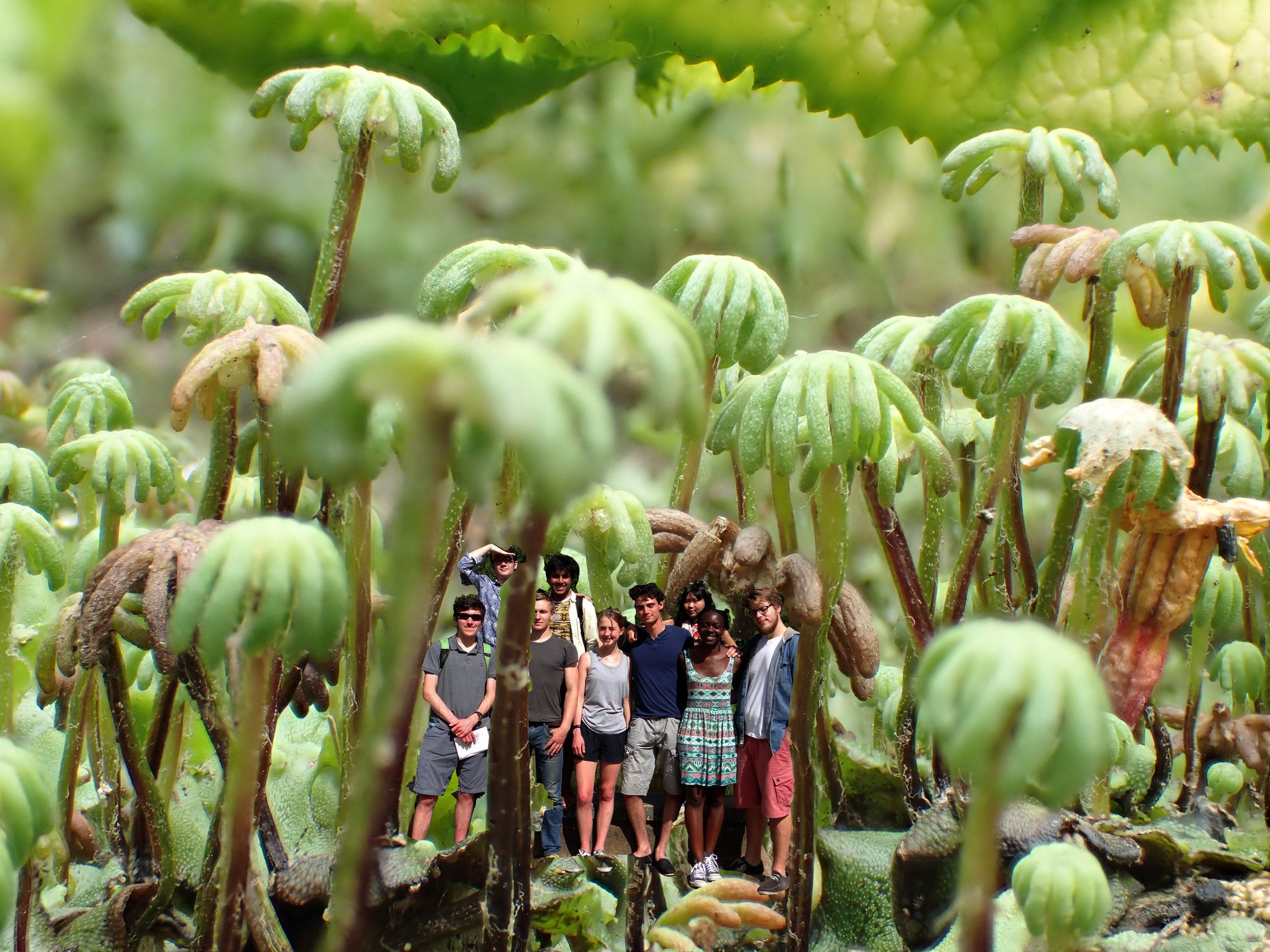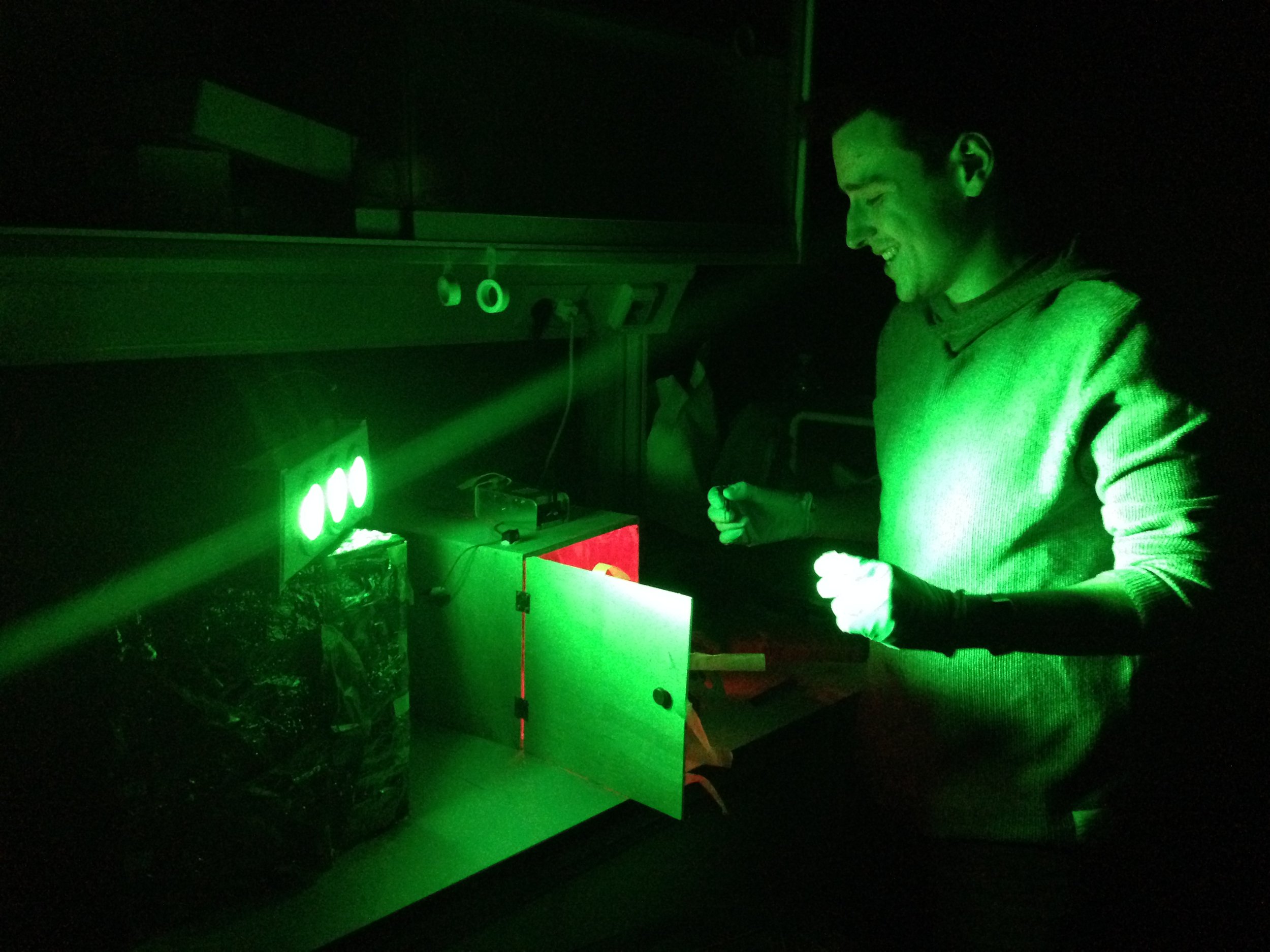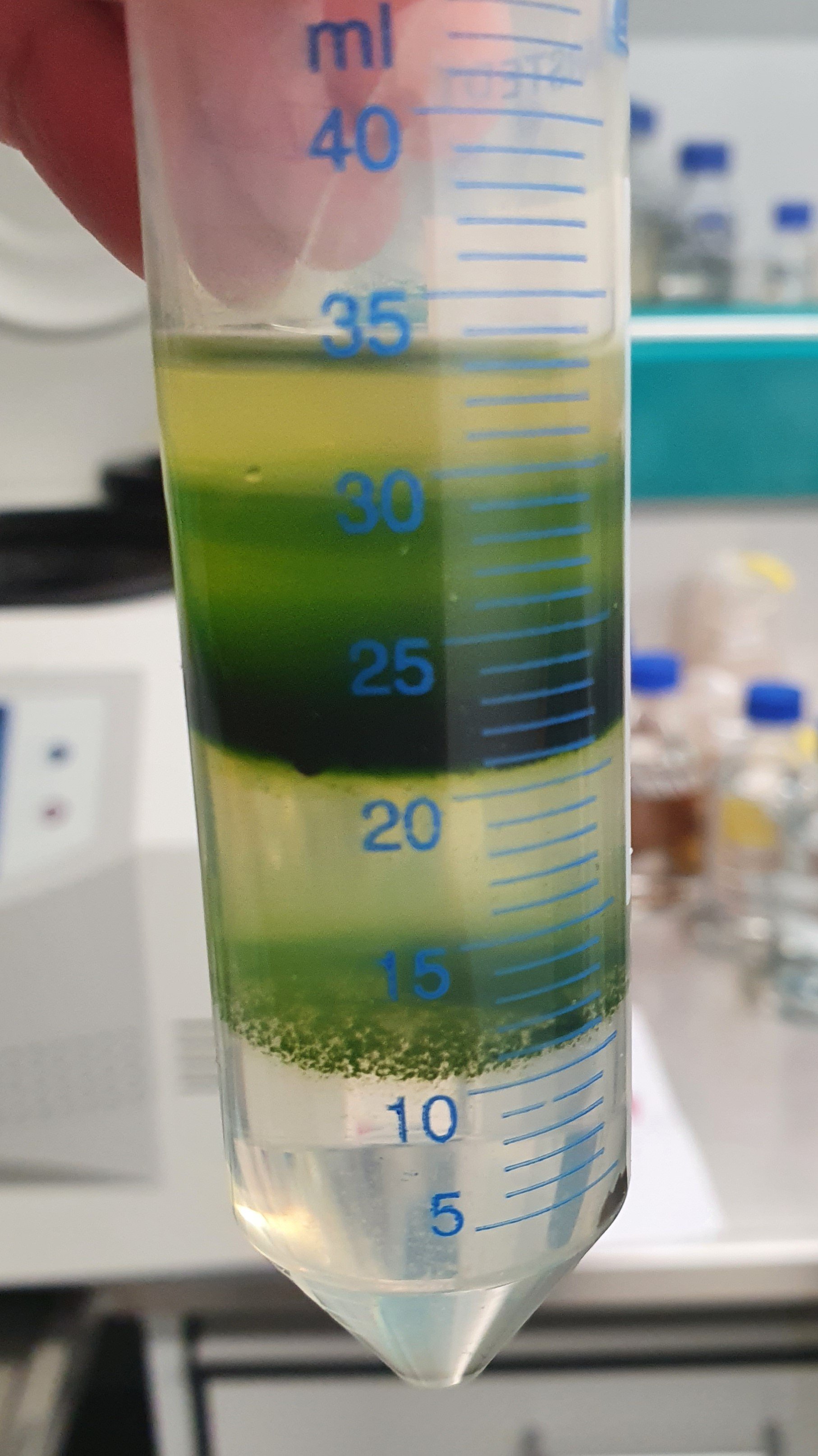Growing plant synthetic biology over 20 years of iGEM
by Linda Kahl and Abigail Sison
“A garden requires patient labor and attention. Plants do not grow merely to satisfy ambitions or to fulfill good intentions. They thrive because someone expended effort on them.”
While all iGEM teams push the boundaries of synthetic biology, teams who undertake plant projects must overcome a challenge that is particular to plants – namely, that plants take a long time to grow. One reason iGEM teams are successful in pioneering plant synthetic biology is because the teams that have come before have expended effort to get plants to grow within the timeframe of an iGEM Competition season.
In honor of the 20th year of iGEM, we thought we’d take a look back on the achievements of some of the teams that have pioneered plant synthetic biology.
The Team Harvard 2010 (United States) iGarden aimed to create a toolkit for the cultivation of a personalized garden containing features introduced through synthetic biology.
2010
Team Nevada 2010 (United States) aimed to develop plant biosensors that reliably measure changes in the local environment, using Nicotiana tabacum cells for proof of concept.
Harvard 2010 (United States) and Nevada 2010 (United States) become the first teams to undertake a plant project, introducing Arabidopsis thaliana and Nicotiana tabacum as chassis.
Team UEA-JIC_Norwich 2011 (United Kingdom) project: “The evolution of Synthetic Biology” aimed to introduce new photosynthetic eukaryotes Physcomitrella patens and Chlamydomonas reinhardtii as model organisms for synthetic biology.
2011
Bilkent_UNAM_Turkey 2011 (Turkey) and UEA-JIC_Norwich 2011 (United Kingdom) work with the photosynthetic eukaryotes, Physcomitrella patens and Chlamydomonas reinhardtii.
2012
Team Nanjing-China 2012 (China) designed BioBrick parts for the expression of artificial micro RNAs in lettuce for therapeutic purposes.
Kyoto 2012 (Japan) established a new protein translocation system, R-TAT, that can carry proteins from the cytoplasm to plant cells while maintaining appropriate folding of target proteins. Gold Medal, Collegiate Division.
Georgia State 2012 (United States) engineered a binary vector system using the Ti plasmid of Agrobacterium tumefaciens compatible with iGEM standards for the expression of foreign proteins within plants. Collegiate Division.
Nanjing-China 2012 (China) designed BioBrick parts for the expression of artificial micro RNAs in plants. Collegiate Division.
Toronto 2012 (Canada) engineered Arabidopsis thaliana for constitutive expression of genes enabling extracellular secretion and tolerance to low temperature stress in plants. Collegiate Division.
2013
In 2023, Team TU_Munich (Germany) earned First Runner-Up with their engineered the photoautotrophic chassis, Physcomitrella patens, to develop a transgenic moss filter capable of reducing contamination of aquatic ecosystems.
TU_Munich 2013 (Germany) engineered the photoautotrophic chassis, Physcomitrella patens, to develop a transgenic moss filter capable of reducing contamination of aquatic ecosystems. First Runner-Up to the Grand Prize, Best Environment Project, Undergrad Division.
Marburg 2013 (Germany) used the sunlight-driven microalgae Phaeodactylum tricornutum to produce antibodies, proteins that require post-translational modification. Gold Medal, Overgrad Division.
Penn_State 2013 (United States) characterized key plant parts, introduced the Cas9 crisper system into plants, and demonstrated the ability of plants to be used as natural factories to produce flavorings, fuel, plastic, and other valuable chemicals and materials. Bronze Medal, Undergrad Division.
2014
Cambridge-JIC 2014 (United Kingdom) developed a modular, open-source biosensing platform “mösbi” using a novel, user-friendly plant chassis: Marchantia polymorpha.
BIOSINT_Mexico 2014 (Mexico) designed “Green Demon” - a modular system in A. thaliana that can extract metals, in particular mercury, from the soil and convert it into a less reactive species. Undergrad Division.
Cambridge-JIC 2014 (United Kingdom) developed a modular, open-source biosensing platform “mösbi” using a novel, user-friendly plant chassis: Marchantia polymorpha. Undergrad Division
Concordia_2014 (Canada) created a specialized toolkit of standard biological parts, including promoters, terminators, fluorescent proteins, localization tags, antibiotic markers, and CRISPR/Cas using four distinct Chlorella spp. and Chlamydomonas reinhardtii. Overgrad Division.
Hannover 2014 (Germany) produced Top4-Metal Binding Protein in plants as a means to remove heavy metals from nature, including copper, arsenic, zinc and cadmium. Silver Medal, Overgrad Division.
Team NRP-UEA-Norwich 2014 (United Kingdom) performed proof of concept for “Green Canary”: sentinel plants designed to diagnose the presence of plant pathogens.
NRP-UEA-Norwich 2014 (United Kingdom) designed sentinel plants to diagnose the presence of two pathogens, Xanthomonas oryzae and Xanthomonas campestris. Gold Medal, Undergrad Division.
Valencia_UPV 2014 (Spain) developed a synthetic plant capable of producing insect sexual pheromones to prevent male insects from finding the females as a sustainable alternative to current pest management. Gold Medal, Best Part Collection, Undergrad Division.
2015
iGEM officially adopts RFC 106, a standard Type IIS syntax for plants that is aligned with the standard Type IIS syntax used by the international plant synthetic biology community
In 2015, Team UNIK_Copenhagen (Denmark) engineered a moss able to produce compounds essential for it to thrive on Mars – SpaceMoss – that expresses an antifreeze protein to help it survive low temperatures, and the antioxidant Resveratrol that would be useful as a medical supplement to astronauts.
CAU_China 2015 (China) engineered a device in leaf explants of Rehmannia glutinosa Libosch to promote the production of Acyl Phenylethanoid Glycosides, which play an important role in various plants that can bring benefits to human beings through their physiological activity. Silver Medal, Undergrad Division.
Georgia_State 2015 (United States) engineered a protein expression system in tobacco plants to produce CBDA synthase as a pharmaceutical alternative for patients that suffer from diseases such as epilepsy, cancer, or chronic severe pain. Silver Medal, Overgrad Division.
UNIK_Copenhagen 2015 (Denmark) engineered a moss able to produce compounds essential for it to thrive on Mars – SpaceMoss – that expresses an antifreeze protein to help it survive low temperatures, and the antioxidant Resveratrol that would be useful as a medical supplement to astronauts. Gold Medal, Overgrad Division.
Other plant projects in 2015: AHUT_China 2015 (China) Nutrition Commander: A bio-device can control the APeGs of the plant metabolism; CAU_China 2015 (China) Herbicide vs Herbicide Resistant Gene; NYMU-Taipei 2015 (Taiwan) Fight the Blight.
2016
Best Plant Synthetic Biology special award introduced to recognize and celebrate teams doing exemplary work in plant synthetic biology
Team SCAU-China (China) were awarded the Best Plant Synthetic Biology Special Award, and second runner-up to the Grand Prize in 2016 with their project aSTARice, a rice endosperm that produces astaxanthin, a powerful antioxidant with great value in medical and health care.
SCAU-China 2016 (China) created a bioreactor using rice endosperm to produce astaxanthin, a powerful antioxidant with great value in medical and health care. Best Plant Synthetic Biology, Second Runner-Up to the Grand Prize, Undergrad Division.
Cambridge-JIC 2016 (United Kingdom) developed a toolkit for chloroplast transformation, reducing the time needed for a homoplasmic chloroplast transformation from months to 1-2 weeks. Gold Medal, Best Plant Synthetic Biology, Overgrad Division.
Other plant projects in 2016: GDSYZX-United 2016 (China) Super-HHL1: protecting plants from photodamage; Georgia_State 2016 (United States) Oppossum, Plants, and Pichia: You Down With OPP?; Linkoping_Sweden 2016 (Sweden) A CRISPR case for biofuel; Pumas_Mexico 2016 (Mexico) Synerg-G; SZU-China 2016 (China) Light Hygician; USP_UNIFESP-Brazil 2016 (Brazil) AlgAranha; Valencia_UPV 2016 (Spain) HYPE-IT: Hack Your Plants Editing with us.
2017
10 teams working with plants or green algae
Team UESTC-China (China) were awarded Best Plant Synthetic Biology special award in 2017 for their design of a phytoremediation system for 1,2,3-Trichloropropane, a new organic pollutant from industrial waste and agriculture.
UESTC-China 2017 (China) designed a phytoremediation system for 1,2,3-Trichloropropane, a new organic pollutant which has been introduced into the environment as a consequence of industrial waste disposal and widespread open use in agriculture. Gold Medal, Best Plant Synthetic Biology, Undergrad Division.
Team Valencia_UPV 2017 (Spain) created ChatterPlant, a SynBio-based solution that works as plant-human interface allowing a bidirectional communication. Pictured: a ChatterBox prototype used in a light-induction expression experiment.
Cardiff_Wales 2017 (United Kingdom) expressed the human thyroid stimulating hormone antagonist protein in Nicotiana benthamiana, as a therapeutic for the treatment of Graves’ Disease, and expanded the set of tools available for regulating gene expression in plant synthetic biology. Nominated for Best Therapeutics Project, Undergrad Division.
Valencia_UPV 2017 (Spain) created a plant-human interface allowing a bidirectional communication, a hardware device specially designed to control plant’s growth conditions, and an open-access online platform which aims to unify Plant SynBio researchers’ work. Gold Medal, Nominated for Best Applied Design and Best Software Tool, Undergrad Division.
Other plant projects in 2017: Lanzhou 2017 (China) A novel method in controlling weeds and pests by tandem RNA Interference; Missouri_Rolla 2017 (United States) Detecting groundwater and soil pollutants using plant biosensors; NU_Kazakhstan 2017 (Kazakhstan) Bioremediation of hexavalent chromium; SECA_NZ 2017 (New Zealand) Frozen in Thyme; UChile_OpenBio-CeBiB 2017 (Chile) Greenhardtii Project; UConn 2017 (United States) An Algaeneious Approach to Continuous Cultures for Biofuel Production; York 2017 (United Kingdom) QWACC: a Quicker Way to Analyse Co-Cultures.
2018
Team HebrewU 2018 (Israel) engineered a metabolic pathway in A. thaliana for the complete degradation of dioxins, and detoxification of chlorinated compounds.
Cardiff_Wales 2018 (United Kingdom) produced an RNAi pesticide against Myzus persicae, the most economically detrimental aphid pest worldwide. Gold Medal, Best Plant Synthetic Biology, Undergrad Division.
HebrewU 2018 (Israel) engineered a metabolic pathway for the complete degradation of dioxins, and detoxification of chlorinated compounds. Gold Medal, Best Plant Synthetic Biology, Overgrad Division.
Navarra_BG 2018 (Spain) developed a simple plant-based method for production and purification of recombinant proteins. Best Plant Synthetic Biology, High School Division.
Other plant projects in 2018: BOKU-Vienna 2018 (Austria) ROBOCROP –Turning Genes ON and OFF, in Yeast and Arabidopsis through a dCas9 Toggle Switch; HSHL 2018 (Germany) Enabling Tobacco plants to hyperaccumulate heavy metals; Missouri_Rolla 2018 (United States) BTree; SHSID_China 2018 (China) Everglow; Sorbonne_U_Paris 2018 (France) Suga[R]evolution; UGA 2018 (United States) Development of Gal4/UAS Reporter Systems for use in Plants.
2019
16 teams working with plants or green algae
Humboldt_Berlin 2019 (Germany) established a toolkit of genetic parts and vectors to engineer C. reinhardtii's genome to tackle man-made environmental problems. Gold Medal, Best Plant Synthetic Biology, Overgrad Division.
Navarra_BG 2019 (Spain) aimed to produce plants that stably express recombinant proteins and are capable of growing under the challenging conditions of low gravity, high irradiance, acid pH soils, low atmospheric pressure, and freezing temperatures found in extra-terrestrial environments. Silver Medal, Best Plant Synthetic Biology, High School Division.
Sorbonne_U_Paris 2019 (France) engineered Chlamydomonas reinhardtii to produce palmitic acid (C16:0) and oleic acid (C18:1) as an alternative and ecological way of producing palm oil, the most widely used vegetable oil in the world. Gold Medal, Nominated for Best Plant Synthetic Biology and Best Environment Project, Undergrad Division.
TU_Kaiserslautern 2019 (Germany) engineered Chlamydomonas reinhardtii to create an efficient biological recycling method for PET plastic waste. Gold Medal, Best Plant Synthetic Biology, Best Environment Project, 2nd runner-up to Grand Prize, Undergrad Division.
Other plant projects in 2019: Bonn 2019 (Germany) Optoplant: Lighting up your way to a better future; DUT_China B 2019 (China) Bio-microrobot: A Light Driven Reinhardtti; FAFU_China 2019 (China) Fossil Fuel -1s -1s, BioDiesel +1s +1s; GDSYZX 2019 (China) Adorabal - Salidroside produced in Arabidopsis thaliana; Lethbridge 2019 (Canada) Algulin: a low-cost oral insulin produced and administered in microalgae; Nanjing 2019 (China) Anti-Aphid Angiosperm: use cotton chitinase gene to resist pest invasion;Richmond_UR 2019 (United States) Agro Immunity;RIS_BKK 2019 (Thailand) Improving Lives Through Rice; SJTU-Software 2019 (China) Phosyme: an online database with toolbox focusing on the plant synthetic biology; SNU_India 2019 (India) AlBaCo: An Algal-Bacterial Consortium for Detection and Degradation of Endocrine disruptors; Stony_Brook 2019 (United States) Planti-Virus; UGA 2019 (United States) Engineering an Inherent Resistance to Aflatoxin B1 (AFB1) in Peanut Plants.
2020
10 of 256 teams work on plant projects in the midst of this first year of the pandemic
Sorbonne_U_Paris 2020 (France) designed a microalgae filter capable of retaining and degrading Atrazine, an herbicide that is toxic to the aquatic environment and humans, and despite being banned, is still detectable in the River Seine. Gold Medal, Best Plant Synthetic Biology, Undergrad Division.
Duesseldorf 2020 (Germany) engineered the moss Physcomitrella patens to accumulate phosphate as a sustainable way to filter phosphate from wastewater and grow phosphate-rich moss plants that can be used as fertilizer to provide crops with recycled phosphate. Silver Medal, Overgrad Division.
Stony_Brook 2020 (United States) introduced an optogenetic killswitch in Nicotiana benthamiana as a strategy for preventing gene transfer from transgenic to wild crops, which threatens biodiversity. Silver Medal, Undergrad Division.
Other plant projects in 2020: CU_Boulder 2020 (United States) Engineering Self-Fertilizing Plants; GDSYZX 2020 (China) Cultural Great Adventure to Rice; Hamburg 2020 (Germany) Unicorn - an aMAIZEing concept; Lethbridge 2020 (Canada) FriGEM ® Engineering Potatoes to Express Antimicrobial Peptides for Agriculture and Human Health; SJTU-software 2020 (China) RICAID; ROADS_SY 2020 (China) Rice Arsenate Accumulation Reduction; TU_Kaiserslautern 2020 (Germany) Microdestruction.
2021
OpenPlast by team Marburg 2021 (Germany) wins the Grand Prize
In 2021, Team Marburg’s (Germany) project OpenPlast won the Overgraduate Grand Prize with the development of cell free systems from chloroplasts for use as rapid prototyping systems for plant synthetic biology.
Marburg 2021 (Germany) developed cell free systems from chloroplasts of different plants, including crops. Gold Medal, Grand Prize, Best Foundational Advance, Best Measurement, Best Sustainable Development Impact, Safety and Security Award, Nominated for Best Plant Synthetic Biology, Overgrad Division.
MiamiU_OH 2021 (Unites States) explored an alternative RuBP regeneration portion of the Calvin-Benson-Bassham cycle pathways to improve the efficiency of photosynthesis, which could eventually be implemented into higher plants to allow more robust cycling and higher crop yield. Gold Medal, Nominated for Best Plant Synthetic Biology and Best Food and Nutrition Project, Undergrad Division.
USP-Brazil 2021 (Brazil) developed a plant (Solanum lycopersicum) that can metabolize Imidacloprid specifically in pollen, so that pollen remains safe for bees and other pollinators while the rest of the plant is protected against pests. Gold Medal, Best Plant Synthetic Biology, Overgrad Division.
UZurich 2021 (Germany) constructed bacterial membrane vesicles to boost plant immunity as an alternative to synthetic pesticides for combatting plant pathogens, thereby paving the way towards more sustainable agriculture. Gold Medal, Top 10, Best New Application, Nominated for Best Plant Synthetic Biology and Best Sustainable Development Impact, Overgrad Division.
Other plant projects in 2021: Bielefeld-CeBiTec 2021 (Germany) P.L.A.N.T. Plant-based Ligand Activated Noxious agent Tracker; CHINA-FAFU 2021 (China) Microscopic Algae, Macroscopic Energy; Duesseldorf 2021 (Germany) Development of an in-field quick test for the differentiation of plant pathogens; KU_Leuven 2021 (Belgium) Development of a continuous directed evolution platform for in vitro-cultured plant cells; Lambert_GA 2021 (United States) AgroSENSE; MIT_MAHE 2021 (India) Cell-tinel; Navarra_BG 2021 (Spain) A project to provide UV protection for plants on Mars; NJTech_China 2021 (China) Saving Rose Plan—Design and Construction of Synthetic Yeast-Microalgae Consortia for Biosynthesis of Phenylethanol; NTHU_Taiwan 2021 (Taiwan) Compine: A Novel Way to Solve Pine Wilt Disease; SCAU-China 2021 (China) MESEG; Sorbonne_U_Paris 2021 (France) Chlamy'n Space; Tuebingen 2021 (Germany) ATHELAS: A modular screening platform for stabilized antimicrobial peptides expressed in Nicotiana benthamiana; WVHS_SanDiego_CA (United States) Project Purified.
2022
16 teams working with plants or green algae
Sorbonne_U_Paris 2022 (France) created New Algae for World Improvements (NAWI), which transforms green microalgae in order to create a new food source, rich in iron to fight malnutrition problems like anemia. Gold Medal, Best Plant Synthetic Biology, Overgrad Division.
CU-Boulder 2022 (United States) engineered the soybean plant Glycine max to produce precursors of Paclitaxel, one of the most intensively used anti-tumor drugs that has historically been extracted with toxic solvents from the endangered Pacific Yew tree. Bronze Medal, Nominee Best Plant Synthetic Biology, Undergrad Division.
Hopkins 2022 (United States) engineered roots to grow directionally in gradient magnetic fields – magnetotropism – as a strategy to advance astrobiology and enhance nutritional outcomes for astronauts. Gold Medal, Nominee Best Plant Synthetic Biology, Undergrad Division.
UESTC-BioTech 2022 (China) modified the metabolic pathways of Chlamydomonas reinhardtii to enrich lipid productivity for more efficient manufacture of biofuels as a sustainable, clean, renewable energy source. Gold Medal, Nominee Best Plant Synthetic Biology, Undergrad Division.
UniofBath 2022 (United Kingdom) developed a novel hydroponics method based on a NASA experiment measuring Arabidopsis thaliana seedling growth in lunar dust. Gold Medal, Nominee Best Sustainable Development Impact, Overgrad Division.
Other plant projects in 2022: ASU 2022 (United States) Chlamydomon[As]; CHINA-FAFU 2022 (China) Microalgae Growing, Water Clearing; Crete 2022 (Greece) A.T.R.O.P.A. - Agricultural Techniques and Research On Preventive Agrodiagnostics; HiZJU-China 2022 (China) Teafender; HKU_HongKong 2022 (Hong Kong) Transgenic Cecropin B-expressing Chlorella autotrophica for passive immunization of fish; GA_State_SW_Jiaotong 2022 (China and United States) A Co-Culture Between Genetically Modified C. minutissima and E. coli for Efficient Biofuel Production; Navarra_BG 2022 (Spain) BioGalaxy Project: A new method for monitoring air quality, plants as CO2 sensors; Thessaly 2022 (Greece) Navanthus: A monitoring and phytoremediation system against eutrophication; UBC_Vancouver 2022 (Canada) Synaestivum: a heat-inducible genetic plant system in wheat to strengthen tolerance to elevated temperatures; Uincheon 2022 (Republic of Korea) Algene; Worldshaper-Shanghai 2022 (China) The Smurfs: Anti-aging anthocyanins produced in hairy root cultures.
Thanks to these iGEM teams and the many other researchers who are focusing on plants, the field of plant synthetic biology is blossoming! As the 2023 and future iGEM teams move forward with their projects, we anticipate many more advances in the knowledge, tools, and resources for engineering plants.




















